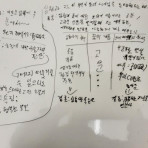China to send giant pandas back to US
본문
Fri, 23 Feb 2024 13:41:00 -0500

Fulfilling a pledge made by Chinese President Xi Jinping in San Francisco last year, China will again send giant pandas to the United States, with two due at the San Diego Zoo this summer and talks ongoing to send more to the National Zoo in Washington, D.C.
The giant pandas, which Xi called “envoys of friendship” during a speech at a dinner with American business leaders in San Francisco in November, will be sent abroad as part of a series of deals made by China Wildlife Conservation Association with global zoos.
Spain’s Zoo Madrid is set to receive new panda diplomats as part of the first wave of envoys, while the Schönbrunn Zoo in Vienna, Austria is also in talks to receive pandas, Chinese Foreign Ministry spokesperson Mao Ning told reporters at a press briefing on Thursday.
“We hope that the new round of international cooperation on giant panda conservation between China and relevant countries will further enrich scientific research in protecting giant panda and other endangered species, and forge closer bonds between our peoples,” Mao said, calling the pandas “a national treasure of China.”
Currently in the United States, giant pandas can only be found at Zoo Atlanta in Georgia, which has four. Other pandas in Washington D.C., San Diego and Memphis, Tennessee, have all returned to China in recent years.
‘Envoys of friendship’
China first sent pandas to the United States in the 1970s – with the National Zoo the beneficiary at the time – amid the normalization of relations between Washington and Beijing at the height of the Cold War, and following the Sino-Soviet split in the communist world.
However, the National Zoo sent back its three last giant pandas – Mei Xiang, Tian Tian and Xiao Qi Ji – to Chengdu, China, via a special FedEx flight on Nov. 8 after a 50-year-old deal lapsed last year.
Speaking on Nov. 16 to American business leaders in San Francisco, Xi received the biggest round of applause of the night when he called the pandas “envoys of friendship between the Chinese and American peoples” and pledged to again send some across the Pacific.
He said it was sad that the National Zoo’s pandas had returned.
“I was told that many American people, especially children, were really reluctant to say goodbye to the pandas and went to the zoo to see them off,” Xi said, adding he also knew that “Californians very much look forward to welcoming pandas back” to the San Diego Zoo.
“We are ready to continue our cooperation with the United States on panda conservation,” he said, “and to do our best to meet the wishes of the Californians so as to deepen friendly ties between our peoples.”
John Kirby, spokesman for U.S. President Joe Biden’s National Security Council, the next day called China’s recall of the pandas a “sovereign decision” but said they would be welcomed back.
“Certainly, should a decision be made by the PRC to restore some of the pandas to the United States, we would absolutely just welcome them back,” Kirby said, referring to the People’s Republic of China.
How ‘bout them cubs
San Diego Zoo said in a statement that it was excited by the chance to again keep giant pandas, adding that the zoo’s past experience with pandas had “played a meaningful role in China’s efforts to bring the iconic and beloved giant panda back from the brink of extinction.”
The giant pandas sent to San Diego are set to be cubs of the pandas that previously were kept at the zoo but were sent back to China.
“We are humbled by the potential opportunity of continuing our collaborative conservation efforts to secure the future for giant pandas,” Megan Owen, vice president of conservation science at the zoo said, adding zookeepers were working to expedite their arrival.
“Pandas in our care and in the care of Chinese colleagues at conservation facilities play an important role as assurance against extinction and loss of genetic diversity in their native habitats, as well as a source population for reintroductions,” she said.
Despite the goodwill surrounding the return of the giant pandas, though, “panda diplomacy” has not been without its own dramas.
The return of the Memphis pandas in April last year coincided with false claims from some Chinese netizens that their zookeepers had mistreated them, after one of the pandas had died in captivity.
Edited by Malcolm Foster.
Fulfilling a pledge made by Chinese President Xi Jinping in San Francisco last year, China will again send giant pandas to the United States, with two due at the San Diego Zoo this summer and talks ongoing to send more to the National Zoo in Washington, D.C.
The giant pandas, which Xi called “envoys of friendship” during a speech at a dinner with American business leaders in San Francisco in November, will be sent abroad as part of a series of deals made by China Wildlife Conservation Association with global zoos.
Spain’s Zoo Madrid is set to receive new panda diplomats as part of the first wave of envoys, while the Schönbrunn Zoo in Vienna, Austria is also in talks to receive pandas, Chinese Foreign Ministry spokesperson Mao Ning told reporters at a press briefing on Thursday.
“We hope that the new round of international cooperation on giant panda conservation between China and relevant countries will further enrich scientific research in protecting giant panda and other endangered species, and forge closer bonds between our peoples,” Mao said, calling the pandas “a national treasure of China.”
Currently in the United States, giant pandas can only be found at Zoo Atlanta in Georgia, which has four. Other pandas in Washington D.C., San Diego and Memphis, Tennessee, have all returned to China in recent years.
‘Envoys of friendship’
China first sent pandas to the United States in the 1970s – with the National Zoo the beneficiary at the time – amid the normalization of relations between Washington and Beijing at the height of the Cold War, and following the Sino-Soviet split in the communist world.
However, the National Zoo sent back its three last giant pandas – Mei Xiang, Tian Tian and Xiao Qi Ji – to Chengdu, China, via a special FedEx flight on Nov. 8 after a 50-year-old deal lapsed last year.
Speaking on Nov. 16 to American business leaders in San Francisco, Xi received the biggest round of applause of the night when he called the pandas “envoys of friendship between the Chinese and American peoples” and pledged to again send some across the Pacific.
He said it was sad that the National Zoo’s pandas had returned.
“I was told that many American people, especially children, were really reluctant to say goodbye to the pandas and went to the zoo to see them off,” Xi said, adding he also knew that “Californians very much look forward to welcoming pandas back” to the San Diego Zoo.
“We are ready to continue our cooperation with the United States on panda conservation,” he said, “and to do our best to meet the wishes of the Californians so as to deepen friendly ties between our peoples.”
John Kirby, spokesman for U.S. President Joe Biden’s National Security Council, the next day called China’s recall of the pandas a “sovereign decision” but said they would be welcomed back.
“Certainly, should a decision be made by the PRC to restore some of the pandas to the United States, we would absolutely just welcome them back,” Kirby said, referring to the People’s Republic of China.
How ‘bout them cubs
San Diego Zoo said in a statement that it was excited by the chance to again keep giant pandas, adding that the zoo’s past experience with pandas had “played a meaningful role in China’s efforts to bring the iconic and beloved giant panda back from the brink of extinction.”
The giant pandas sent to San Diego are set to be cubs of the pandas that previously were kept at the zoo but were sent back to China.
“We are humbled by the potential opportunity of continuing our collaborative conservation efforts to secure the future for giant pandas,” Megan Owen, vice president of conservation science at the zoo said, adding zookeepers were working to expedite their arrival.
“Pandas in our care and in the care of Chinese colleagues at conservation facilities play an important role as assurance against extinction and loss of genetic diversity in their native habitats, as well as a source population for reintroductions,” she said.
Despite the goodwill surrounding the return of the giant pandas, though, “panda diplomacy” has not been without its own dramas.
The return of the Memphis pandas in April last year coincided with false claims from some Chinese netizens that their zookeepers had mistreated them, after one of the pandas had died in captivity.
Edited by Malcolm Foster.
자유아시아방송 제공 및 저작권 소유 | RFA provided and copyrighted -www.rfa.org

Fulfilling a pledge made by Chinese President Xi Jinping in San Francisco last year, China will again send giant pandas to the United States, with two due at the San Diego Zoo this summer and talks ongoing to send more to the National Zoo in Washington, D.C.
The giant pandas, which Xi called “envoys of friendship” during a speech at a dinner with American business leaders in San Francisco in November, will be sent abroad as part of a series of deals made by China Wildlife Conservation Association with global zoos.
Spain’s Zoo Madrid is set to receive new panda diplomats as part of the first wave of envoys, while the Schönbrunn Zoo in Vienna, Austria is also in talks to receive pandas, Chinese Foreign Ministry spokesperson Mao Ning told reporters at a press briefing on Thursday.
“We hope that the new round of international cooperation on giant panda conservation between China and relevant countries will further enrich scientific research in protecting giant panda and other endangered species, and forge closer bonds between our peoples,” Mao said, calling the pandas “a national treasure of China.”
Currently in the United States, giant pandas can only be found at Zoo Atlanta in Georgia, which has four. Other pandas in Washington D.C., San Diego and Memphis, Tennessee, have all returned to China in recent years.
‘Envoys of friendship’
China first sent pandas to the United States in the 1970s – with the National Zoo the beneficiary at the time – amid the normalization of relations between Washington and Beijing at the height of the Cold War, and following the Sino-Soviet split in the communist world.
However, the National Zoo sent back its three last giant pandas – Mei Xiang, Tian Tian and Xiao Qi Ji – to Chengdu, China, via a special FedEx flight on Nov. 8 after a 50-year-old deal lapsed last year.
Speaking on Nov. 16 to American business leaders in San Francisco, Xi received the biggest round of applause of the night when he called the pandas “envoys of friendship between the Chinese and American peoples” and pledged to again send some across the Pacific.
He said it was sad that the National Zoo’s pandas had returned.
“I was told that many American people, especially children, were really reluctant to say goodbye to the pandas and went to the zoo to see them off,” Xi said, adding he also knew that “Californians very much look forward to welcoming pandas back” to the San Diego Zoo.
“We are ready to continue our cooperation with the United States on panda conservation,” he said, “and to do our best to meet the wishes of the Californians so as to deepen friendly ties between our peoples.”
John Kirby, spokesman for U.S. President Joe Biden’s National Security Council, the next day called China’s recall of the pandas a “sovereign decision” but said they would be welcomed back.
“Certainly, should a decision be made by the PRC to restore some of the pandas to the United States, we would absolutely just welcome them back,” Kirby said, referring to the People’s Republic of China.
How ‘bout them cubs
San Diego Zoo said in a statement that it was excited by the chance to again keep giant pandas, adding that the zoo’s past experience with pandas had “played a meaningful role in China’s efforts to bring the iconic and beloved giant panda back from the brink of extinction.”
The giant pandas sent to San Diego are set to be cubs of the pandas that previously were kept at the zoo but were sent back to China.
“We are humbled by the potential opportunity of continuing our collaborative conservation efforts to secure the future for giant pandas,” Megan Owen, vice president of conservation science at the zoo said, adding zookeepers were working to expedite their arrival.
“Pandas in our care and in the care of Chinese colleagues at conservation facilities play an important role as assurance against extinction and loss of genetic diversity in their native habitats, as well as a source population for reintroductions,” she said.
Despite the goodwill surrounding the return of the giant pandas, though, “panda diplomacy” has not been without its own dramas.
The return of the Memphis pandas in April last year coincided with false claims from some Chinese netizens that their zookeepers had mistreated them, after one of the pandas had died in captivity.
Edited by Malcolm Foster.
Fulfilling a pledge made by Chinese President Xi Jinping in San Francisco last year, China will again send giant pandas to the United States, with two due at the San Diego Zoo this summer and talks ongoing to send more to the National Zoo in Washington, D.C.
The giant pandas, which Xi called “envoys of friendship” during a speech at a dinner with American business leaders in San Francisco in November, will be sent abroad as part of a series of deals made by China Wildlife Conservation Association with global zoos.
Spain’s Zoo Madrid is set to receive new panda diplomats as part of the first wave of envoys, while the Schönbrunn Zoo in Vienna, Austria is also in talks to receive pandas, Chinese Foreign Ministry spokesperson Mao Ning told reporters at a press briefing on Thursday.
“We hope that the new round of international cooperation on giant panda conservation between China and relevant countries will further enrich scientific research in protecting giant panda and other endangered species, and forge closer bonds between our peoples,” Mao said, calling the pandas “a national treasure of China.”
Currently in the United States, giant pandas can only be found at Zoo Atlanta in Georgia, which has four. Other pandas in Washington D.C., San Diego and Memphis, Tennessee, have all returned to China in recent years.
‘Envoys of friendship’
China first sent pandas to the United States in the 1970s – with the National Zoo the beneficiary at the time – amid the normalization of relations between Washington and Beijing at the height of the Cold War, and following the Sino-Soviet split in the communist world.
However, the National Zoo sent back its three last giant pandas – Mei Xiang, Tian Tian and Xiao Qi Ji – to Chengdu, China, via a special FedEx flight on Nov. 8 after a 50-year-old deal lapsed last year.
Speaking on Nov. 16 to American business leaders in San Francisco, Xi received the biggest round of applause of the night when he called the pandas “envoys of friendship between the Chinese and American peoples” and pledged to again send some across the Pacific.
He said it was sad that the National Zoo’s pandas had returned.
“I was told that many American people, especially children, were really reluctant to say goodbye to the pandas and went to the zoo to see them off,” Xi said, adding he also knew that “Californians very much look forward to welcoming pandas back” to the San Diego Zoo.
“We are ready to continue our cooperation with the United States on panda conservation,” he said, “and to do our best to meet the wishes of the Californians so as to deepen friendly ties between our peoples.”
John Kirby, spokesman for U.S. President Joe Biden’s National Security Council, the next day called China’s recall of the pandas a “sovereign decision” but said they would be welcomed back.
“Certainly, should a decision be made by the PRC to restore some of the pandas to the United States, we would absolutely just welcome them back,” Kirby said, referring to the People’s Republic of China.
How ‘bout them cubs
San Diego Zoo said in a statement that it was excited by the chance to again keep giant pandas, adding that the zoo’s past experience with pandas had “played a meaningful role in China’s efforts to bring the iconic and beloved giant panda back from the brink of extinction.”
The giant pandas sent to San Diego are set to be cubs of the pandas that previously were kept at the zoo but were sent back to China.
“We are humbled by the potential opportunity of continuing our collaborative conservation efforts to secure the future for giant pandas,” Megan Owen, vice president of conservation science at the zoo said, adding zookeepers were working to expedite their arrival.
“Pandas in our care and in the care of Chinese colleagues at conservation facilities play an important role as assurance against extinction and loss of genetic diversity in their native habitats, as well as a source population for reintroductions,” she said.
Despite the goodwill surrounding the return of the giant pandas, though, “panda diplomacy” has not been without its own dramas.
The return of the Memphis pandas in April last year coincided with false claims from some Chinese netizens that their zookeepers had mistreated them, after one of the pandas had died in captivity.
Edited by Malcolm Foster.
좋아요1
이 글을 좋아요하셨습니다
관련링크
등록된 댓글이 없습니다.





































